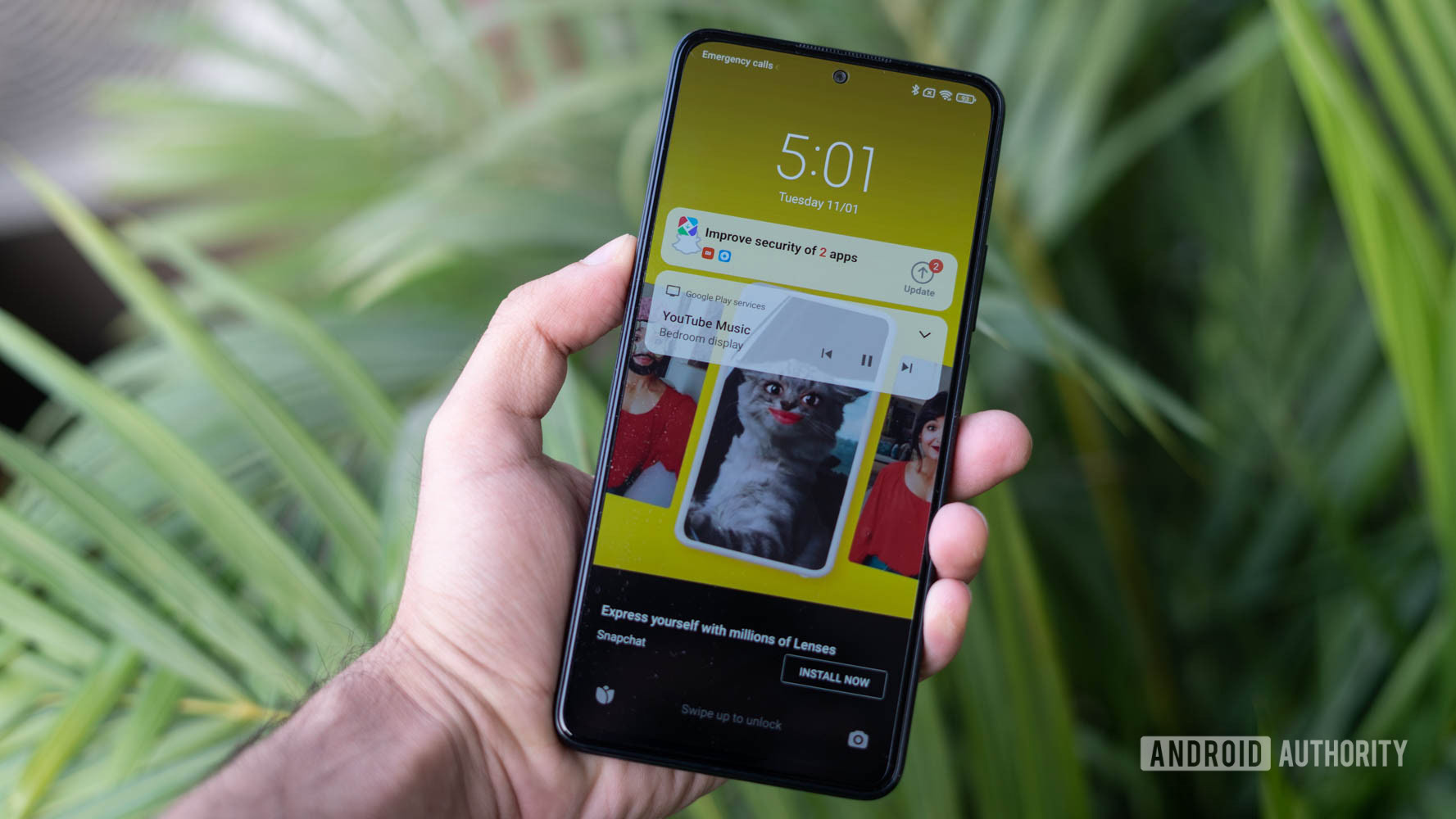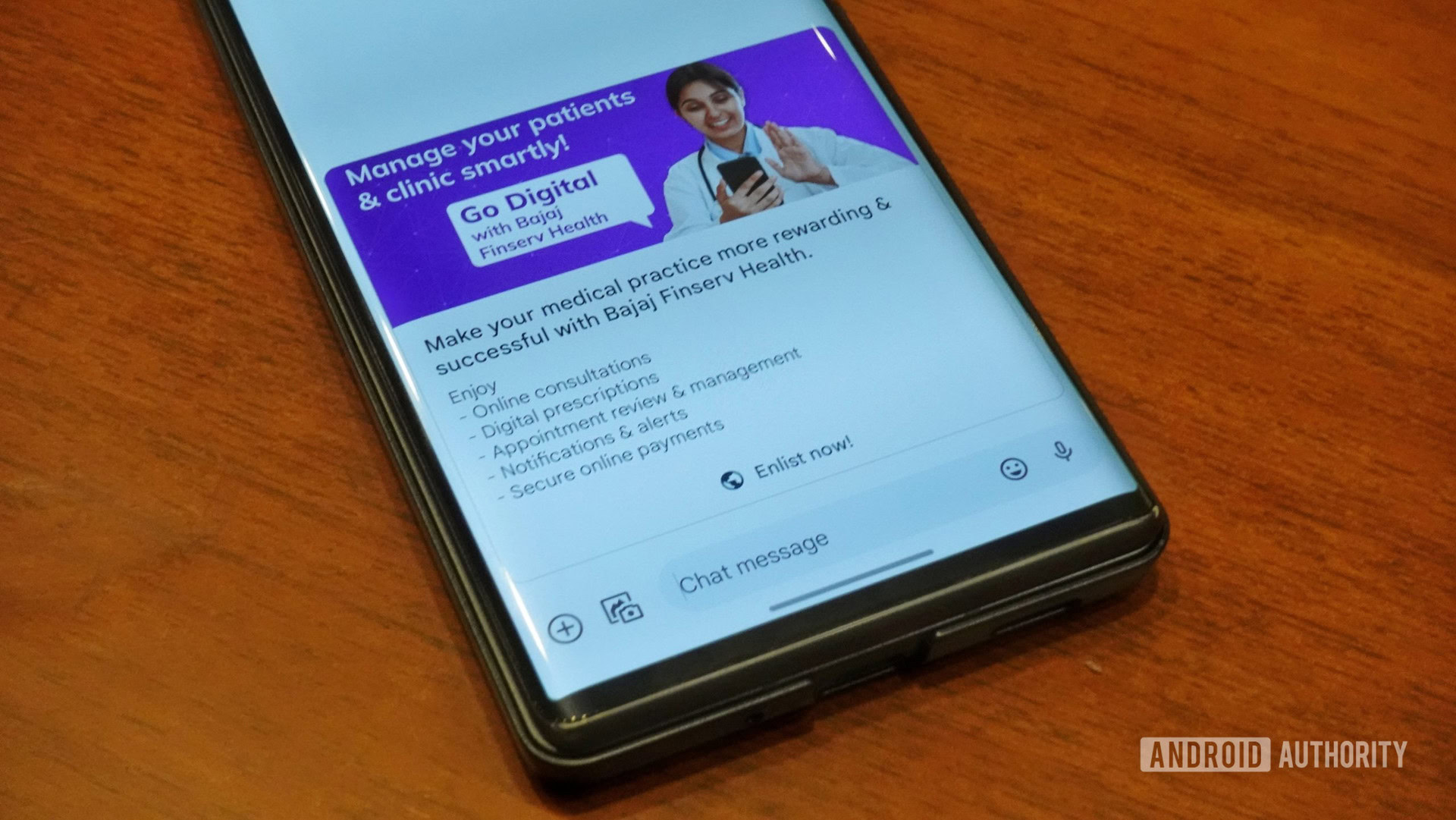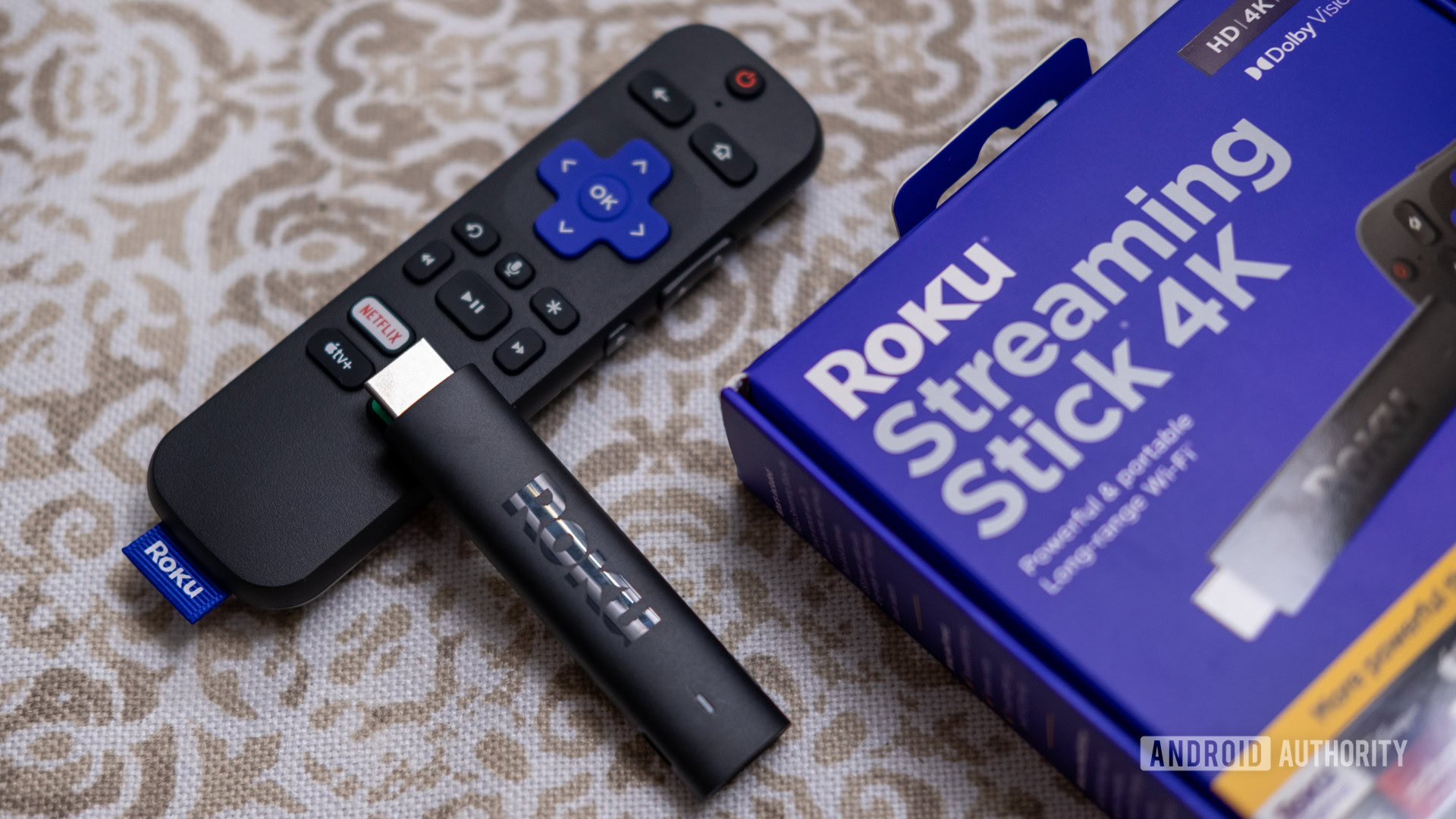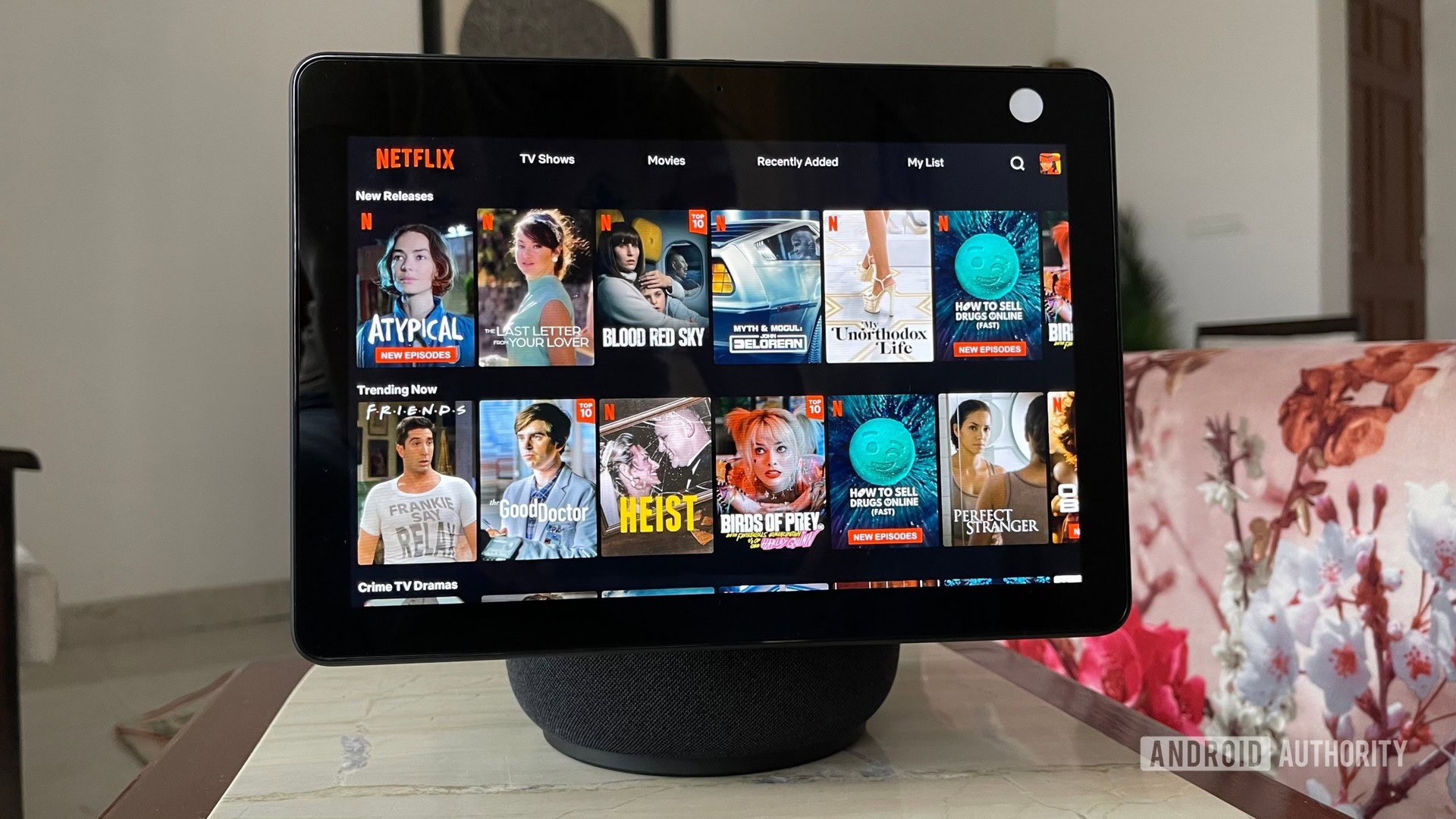Affiliate links on Android Authority may earn us a commission. Learn more.
When unavoidable ads appear in a product I've paid for, I stop using it
July 24, 2022

Most people dislike advertisements. There are those who don’t mind them if they are unavoidable, but I shudder to think anyone out there actually enjoys ads.
Ads are a necessary evil, though. They help fund products and services that would otherwise not exist without them — with Android Authority being a good example. Without funds from advertisements, huge chunks of the internet simply wouldn’t exist, to say nothing of television shows, films, and even hardware like certain smartphones.
The problem, though, is that ads are making their way to all kinds of new places. Netflix is bringing an ad-supported tier soon, and there’s speculation that other streaming services could follow suit. More smartphone lock screens could start seeing ads soon, too, thanks to a company called Glance, which has Google’s backing. As one would expect, users are going to have little control over these ads.
See also: How to block ads across your entire home Wi-Fi network with a Raspberry Pi
We already know how our readers feel about some of these developments (most don’t like them one bit). I am right there with them, but I take things a step further than most. Simply put, if I pay for a product, I had better not see a single solitary advertisement. If I do, that company instantly loses my business.
I understand the need for ads, but still hate them

I fully realize the irony of discussing my hatred for ads on Android Authority, a (free) site with plenty of ads all over it. As I said earlier, I understand how ads keep the lights on for various companies, many of which offer an invaluable service or product. It’s not lost on me that ads, quite literally, pay my salary.
This doesn’t make me like ads, though. If Android Authority could survive without them, I’d be overjoyed to see the site in an ad-free state. I’d also love to be able to drive my car on the highway without seeing billboards, watch a film without obtrusive product placements, or take a walk through the city without someone shoving a pamphlet into my face.
I hate ads, but I am ready to pay to avoid them.
I hate ads so much that I have no problem paying to make them go away. I pay nearly $20 each month to remove ads from YouTube. That’s $240 each year just to watch Red Letter Media videos without an interruption. I have also paid for probably two dozen smartphone apps just to use them ad-free, including 1Weather, SMS Backup & Restore, My Fitness Pal, and many more. I never watch network TV, listen to the radio, or use any streaming service that relies solely on ads to function, regardless of the content that’s available.
However, sometimes that’s not enough. Sometimes companies will still push ads even to paying customers, and that gets my rage boiling.
Our guide: How to block ads on Android
Once I pay, there’d better not be ads. Ever.

YouTube Premium allows me to view all of YouTube in an ad-free state. I don’t get any pre-roll or mid-roll ad videos and there are no banner ads anywhere. I don’t even need to sit through sponsored messages on videos (although, to be honest, I usually stop watching a video when those do come up). It’s a terrific exchange in which I give YouTube money and it totally eliminates ads.
Unfortunately, this isn’t always how it goes. Xiaomi, for example, sells smartphones with ads baked into the Android operating system. Likewise, the previously-mentioned Glance is rolling out lock screen ads to more phones around the globe. Even though you’ve already paid for the phone, you might still have to wade through ads every time you unlock your phone to use it. There were even times that Samsung pushed ads on some of its most expensive phones, although it promised it would not do that anymore.
Related: Is selling your privacy for a cheaper phone really a good idea?
Roku streamers deliver ads, too. In fact, Roku makes more money from ads than it does from hardware sales. There’s no way to disable ads on Android TV devices, either. You can go ahead and try to remove ads from your Amazon Echo Show, too, but you’ll come up empty.
You can't opt out of seeing ads and, in many cases, you have no option to pay to make them stop.
It’s infuriating that companies think this is OK. They don’t let you stop them, either. You can’t opt out of seeing ads and, in many cases, you have no option to pay to make them stop. If I pay for a smartphone, streamer, or other pieces of hardware, it should be mine to use and control as I wish. The way I see it, if unavoidable ads are appearing on something I’ve bought, I don’t really own that product.
I do understand that ads help keep those products affordable, and that’s a good thing. But why can’t I choose to make them go away?
Ads usher affordability, but I should have a choice

Amazon sells its Kindle e-readers in two variants: those with “Special Offers” and those without. The offers are just ads that mainly appear on the lock screen. To get rid of them, you pay an extra $20. You can decide at any time to do this. In other words, if you buy a Kindle with Special Offers, you don’t need to send it back for a different one to remove the ads. You pay Amazon, and boom, the ads are gone.
I am very supportive of this. It helps keep Kindles affordable for pretty much everyone while giving the option of removing ads to those who want. This is how it should be for anything that uses an ad-supported model.
Hulu is another good example. You can pay $6.99 each month for Hulu’s programming with ad interruptions or $12.99 for that exact same programming but without ads. This is great because it makes Hulu accessible to people who are budget-conscious while still giving an ad-free option to people who would rather spend the extra cash.
If I buy a product that's riddled with ads, I should be able to choose to spend a little extra to get rid of them at any point in time.
Smartphones, streamers, and everything else should work the same way. If I buy a cheap smartphone that’s riddled with ads, I should be able to choose to spend a little extra to get rid of them at any point in time. This keeps the phone hardware accessible to those who need it while still making it a viable choice for those who love the phone but hate ads. It also makes it so people who are on a tight budget today can elect to remove ads when they have some extra spending money later.
Unfortunately, this isn’t the case most of the time. Roku’s situation makes it perfectly clear why. The company makes mountains of money from ads, so why would it cut into its own profits?
That’s just the thing, though: These ads make the product worse. I’m not the only one who moves on from companies that try to throw ads at me from all directions. While it might make a lot of money in the short term, ads will never build brand loyalty and they’re certainly not an investment to attract new customers.
Ads are not innovation

When word spread that Netflix was going to roll out an ad-supported tier, it was obvious why. The news came about at the same time as the revelation that the company lost subscribers for the first time in 10 years. Its stock took a major hit and, all of a sudden, an ad-supported tier was on the table.
Think about that for a minute. Netflix was faced with dropping subscribers and it jumped right to bringing in ads. It didn’t say, “Hmmm, maybe we should make our product better,” or “Let’s work on ways to attract new consumers.” Nope. Ads.
As I’ve made clear, if Netflix keeps pricing the same for tiers without ads, I wouldn’t mind it offering an ad-supported tier too. But that is unlikely. Even if it does launch the new tier without altering the current ones, Netflix is not afraid of raising prices, so it would likely do so quickly thereafter.
Are you OK with ads on paid products and services?
It’s very disappointing that companies think throwing ads at their financial issues is a sound business decision. In most other ways, companies would likely agree that making your product objectively worse for the user is a bad move. But for whatever reason, ads don’t seem to count in that regard.
No one has ever fallen in love with a brand because of all the great ads it pushes to them.
I can only hope that companies in all realms — but especially smartphone manufacturers — see that ads are not a catch-all solution. Even if ads are utilized, there should be easy ways for users to disable them. After all, no one has ever fallen in love with a brand because of all the great ads it pushes to them.
In the meantime, I’ll just keep doing what I’ve been doing and only financially support the companies that give me power over my own products. The only way to win this war is to vote with your wallet.